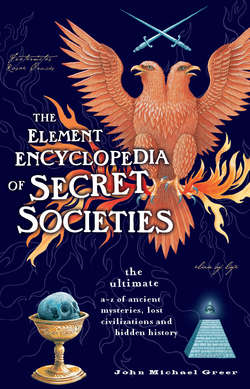Читать книгу The Element Encyclopedia of Secret Societies: The Ultimate A–Z of Ancient Mysteries, Lost Civilizations and Forgotten Wisdom - John Greer Michael - Страница 41
ANTARCTICA
ОглавлениеThe forbidding icebound continent at the bottom of the world was a target for speculation long before its existence was even certain. Many maps from the Middle Ages and Renaissance show a continent of the right shape at the southern end of the world. In the age of European exploration, many attempts were made to find this Terra Australis Incognita (“Unknown Southern Land”), and Australia got its name when Dutch navigators thought they had happened upon its northernmost reaches. Only in the nineteenth century did sailing vessels finally brave the bitter seas and ice floes to map out the coastline of the seventh continent, yet those coastlines appear on maps from the sixteenth century and before – one of several pretty puzzles posed by the impossible knowledge in old maps. See lost civilizations.
Its inaccessibility made Antarctica a favorite setting for adventure fiction in the late nineteenth and early twentieth centuries. The coldest weather on earth and a three-mile-thick ice cap posed little trouble for writers used to spicing their stories with geographical improbabilities. The handful of barren ice-free areas along the Antarctic coast turned, in these tales, into forests hidden behind walls of ice, teeming with woolly mammoths and similar livestock; alternatively, the ice gives way to barren uplands in which lost cities wait to be discovered. In the best of these tales, H.P. Lovecraft’s At the Mountains of Madness, explorers find an obsidian city millions of years old on an ice-free plateau. Its former inhabitants, an alien race from the stars, prove to be a good deal less extinct than they look.
The appeal of Lovecraft’s story, and its many equivalents, guaranteed that its themes would find their way into twentieth-century alternative-reality theories. A document called the Hefferlin Manuscript entered circulation by the 1940s, describing the hidden Rainbow City in Antarctica, one of a network of underground cities built by Martians some two and a half million years ago. The Martians’ enemies, monstrous reptiles from Venus, also have a hidden city in Antarctica where thousands of them sleep in suspended animation, waiting for human members of sinister serpent-worshipping cults to awaken them. The name of the reptiles’ city, Kadath, is only one of many direct borrowings from Lovecraft. See Rainbow City.
Other speculations have dealt with Antarctica’s forbidding climate by suggesting that the continent was free from ice at various points in the past – a claim that has some support from science, though the current consensus rejects it. One of the old maps to show Antarctica, the Oronteus Finaeus map of 1532, portrays the Ross Sea as it would look with open water in place of the present ice sheet. Several early twentieth-century occult orders taught that Antarctica’s original name had been Isuria, and that it was ice-free and inhabited by an advanced society until it was destroyed by an immense catastrophe. Recent alternative-history literature argues similarly that Antarctica was the original Atlantis, and that it was not drowned beneath the oceans, as nearly all other accounts suggest, but flattened by a comet and then buried beneath ice as a result of the climate changes that followed. See Atlantis; earth changes.
These themes have seen their most colorful use in the neo-Nazi mythology of the “Last Battalion,” a secret Nazi military force hidden away in some secret location in the Third Reich’s last days to re-fight the Second World War. This story surfaced in the popular media in the summer of 1945, alongside claims that Hitler himself escaped Berlin and fled to an overseas refuge via U-boat. The rapid spread of variants of this story suggests that disinformation may have been involved, though Hitler’s admirers in Europe and elsewhere proved themselves ready to clutch at straws in an effort to believe their hero was still alive. See Disinformation; National Socialism.
By the 1970s accounts in neo-Nazi circles claimed that the Antarctic base was equipped with flying saucers – allegedly, secret weapons designed and tested by the Third Reich during the war years – and had links to secret underground installations in remote corners of South America and South Africa. The German scientific expedition to Antarctica in 1938 and 1939 was redefined as a reconnaissance mission to locate sites for emergency bases in case Germany lost the approaching war, while the joint American–Soviet expedition headed by Admiral Byrd in 1946 and 1947 entered the mythology as a failed attempt by the Allies to conquer the hidden Nazi redoubt. Much of this material was circulated, and may have been invented, by the pro-Nazi writers Ernst Zundel and Wilhelm Landig to encourage loyalty to the failed Nazi cause. In recent years it has been adopted by several neo-Nazi secret societies, and blended with the “occult Hitlerism” of Miguel Serrano and Savitri Devi in the new racial mythology of the Black Sun. See Black Sun; neo-Nazi secret societies; unidentified flying objects (UFOs).
Further reading: Godwin 1993, Goodrick-Clarke 2002, McKale 1981.
